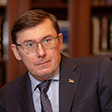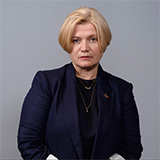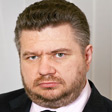Канада відклала підписання угоди про вільну торгівлю через права людини. Чи буде ЄС наслідувати цей приклад?
Ukraine angry as Canada suspends free-trade talks
Sep 27 2013... by Tanya Talaga, Toronto Star Global Economics Reporter
http://www.thestar.com/news/world/2013/09/27/ukraine_angry_as_canada_suspends_freetrade_talks.html
After three years of talks and five rounds of negotiations, the Canadian government suddenly suspended free trade negotiations with Ukraine – leaving a nearly complete deal in limbo, charges Ukrainian Ambassador Vadym Prystaiko.
Nearly $315 million in trade and services occurs between the two countries every year. A free trade agreement could benefit Canada's banks, the intellectual property rights sector and the oil and gas industry.
But suddenly in June, after rounds of meetings in Kyiv, Ottawa and Geneva, International Trade Minister Ed Fast fired off a letter to his Ukrainian counterpart saying the talks were essentially over, Prystaiko said.
The letter implied Canada was dissatisfied with Ukraine's attempt to renegotiate hundreds of tariff reductions at the World Trade Organization and unless changes were made, free trade talks would not proceed, said Prystaiko. Most of the 371 tariffs in dispute have to do with agriculture.
"We don't believe this can be done in cold blood, that easily," Prystaiko said of the suspension of talks.
It's unfortunate Ukraine is trying to renegotiate hundreds of tariff reductions it committed to at the WTO, said Adam Taylor, a spokesperson for International Trade Minister Ed Fast. Ukraine joined the WTO in 2008.
"We continue to remain engaged with Ukraine on many fronts, but will not continue with free trade negotiations until the government of Ukraine demonstrates that it will adhere to its existing trade obligations," he said.
A large part of Prime Minister Stephen Harper's economic agenda is free trade between nations – particularly in Europe and Asia. However, talks with the European Union have not gone smoothly. The rift with Ukraine throws a wrench into Harper's plan to stimulate job growth through trade.
The Ukrainian government says they are surprised by the Canadian about face. In 2010, Harper traveled to Kyiv, met with President Viktor Yanukovych and said he wanted to see closer ties with Ukraine – as long as human rights were respected.
Ukraine became independent from the Soviet Union in 1991 and like most former Eastern bloc countries, it began to democratize and pivot towards Europe.
However, political scandals have plagued the nation of 46 million. Yanukovych was elected Ukrainian president in 2004 but the court ruled his election as fraudulent. He was forced to give up power. Meanwhile the Orange freedom movement, led in part by Yulia Tymoshenko, was gaining ground.
Tymoshenko became the first female prime minister of Ukraine in 2005. Then in 2010, she ran for president but lost to Yanukovych.
In 2011, Tymoshenko was jailed for abuse of office charges, which she has called absurd and politically motivated.
This November, the European Union is poised to sign a number of agreements with Ukraine, including a trade agreement, but the EU wants Tymoshenko freed so she can seek medical treatment in Germany.
Before Fast's letter appeared, Prystaiko said they tried several times to get an answer as to why talks surprisingly shut down in May.
"First they told us, you know, we aren't suspending, we are sort of postponing because everyone is busy, the summer is coming, let's do it later. Then we see a letter coming from minister to minister. That is a different story," Prystaiko said.
Many trading partners, including the United States, Australia and the EU were not impressed with Ukraine's move at the WTO. Canada is the only country to act, Prystaiko said.
If Canada wasn't serious about an agreement, Prystaiko wonders why they bothered to start negotiations in the first place.
Nearly one million Canadians are of Ukrainian background, he said, adding the two countries have a history and should be natural trading partners.
But lately, it has not been easy for Ukrainians to obtain a Canadian travel visa, he said. More than one in 10 is refused. The problem is so bad, he said, one government minister couldn't get a visa for a conference.
In 2005, Ukraine no longer required Canadians carry travel visas. Ukraine expected Canada to do the same.
"It is a 16-per-cent refusal, with no explanations. What are you trying to achieve? You have one million Ukrainians who want to see their friends and families," said Prystaiko.
According to Remi Lariviere, a spokesperson for Citizenship and Immigration Canada, last year 9,449 Ukrainian travel visas were approved and 1,722 were denied – that is an 85 per cent approval rate. The global approval rate was 82 per cent.
Prystaiko said Ukraine is considering bringing back visa requirements for Canadians.







